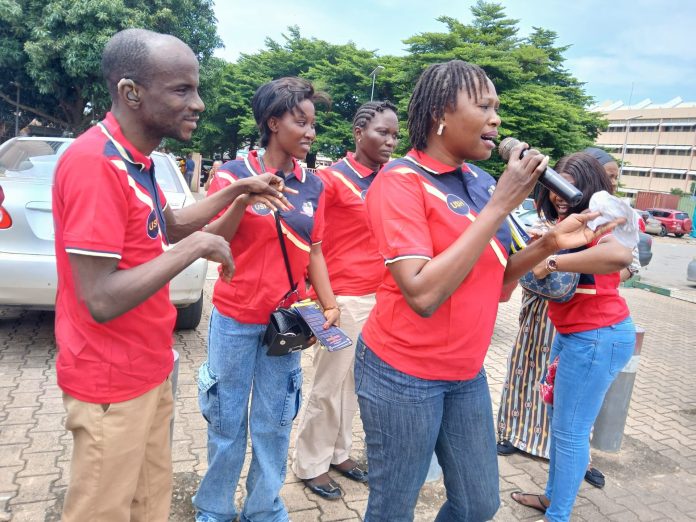In a monumental step toward addressing one of the least recognized but most debilitating conditions, advocacy groups have called on the Federal and State Governments of Nigeria to officially recognize and proclaim support for the Global Usher Syndrome Awareness Day. As part of an ongoing project dubbed “Operation Stop Usher Syndrome: Let’s Build A Future For Individuals With Deaf-blindness in Nigeria,” this appeal aims to shed light on the critical issue of Usher Syndrome, a genetic disorder that is the leading cause of combined deafness and blindness worldwide.
The advocates are not asking for a public holiday, but rather for a show of solidarity that would place Nigeria at the forefront of global efforts to spread awareness about Usher Syndrome. This move, they argue, would help safeguard future generations, prevent the spread of the disorder, and ensure that individuals living with deaf-blindness in Nigeria receive the academic, health, and social support they desperately need.
A Rare but Devastating Disorder
Usher Syndrome, though relatively unknown in many parts of Nigeria, is a genetic condition that results in varying degrees of hearing loss, total blindness, and severe balance issues. Affected individuals, many of whom are born with normal hearing and sight, gradually lose their vision and hearing as they age. The condition, which can be inherited by children when both parents are carriers of the defective gene, is devastating for individuals and families alike.
Though millions of people globally are affected by Usher Syndrome, a significant proportion of cases are found in developing nations like Nigeria, where a lack of genetic testing, counseling facilities, and awareness has led to an increase in the incidence of the disorder. Medical practitioners in Nigeria are largely unfamiliar with Usher Syndrome, making early detection and management almost impossible. As a result, many Nigerians with the condition are left to suffer in silence, facing isolation, depression, and a drastically reduced quality of life.
Global Movement to Halt the Spread of Usher Syndrome
The advocacy groups behind “Operation Stop Usher Syndrome” emphasize the urgency of raising awareness about the disorder. The global community has already rallied around the cause, designating the third Saturday of every September as Global Usher Syndrome Awareness Day. On this day, countries and organizations worldwide unite in their efforts to inform the public about the condition and promote research aimed at finding a cure.
For 2024, the awareness day falls on Saturday, September 21st, and Nigerian advocates are pushing for the country to join this global effort. They argue that Nigeria, with its large and growing population, cannot afford to ignore a condition that has the potential to impact thousands of its citizens.
“By recognizing this day, we are not just showing support for the global effort; we are taking a critical step toward halting the spread of Usher Syndrome in Nigeria,” said Solomon O. Okelola, Founding Executive Director of Lionheart Ability Leaders International Foundation, one of the main organizations behind the advocacy effort. “This is about safeguarding the health of future generations and ensuring that individuals with deaf-blindness in Nigeria are not left behind.”
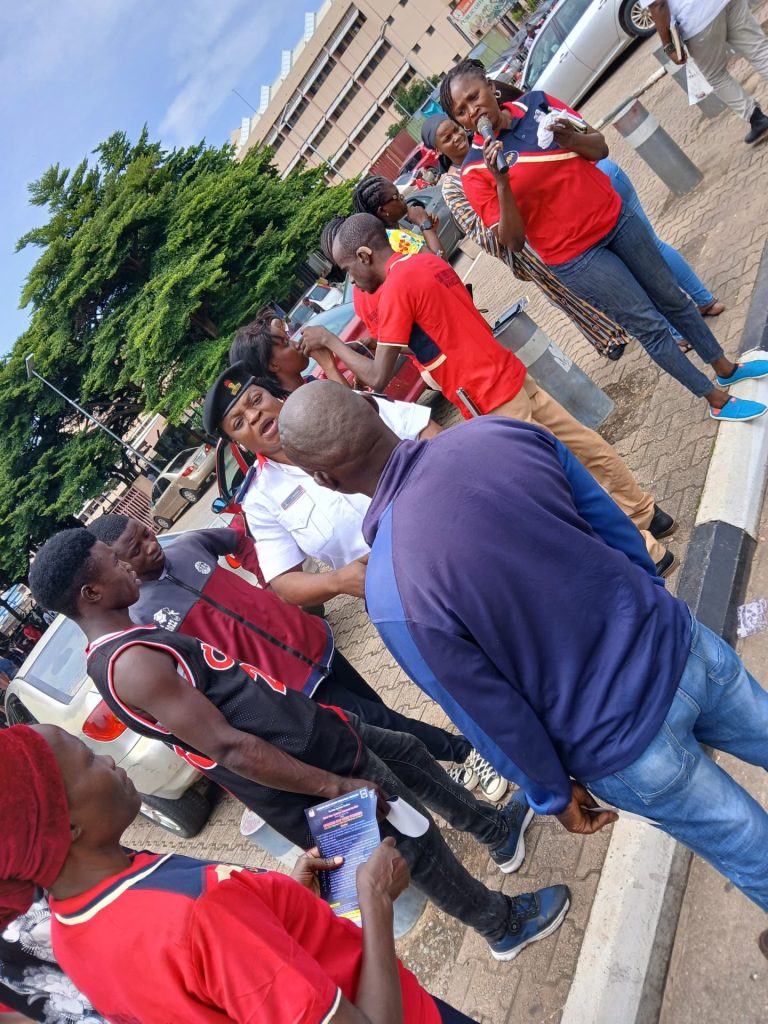
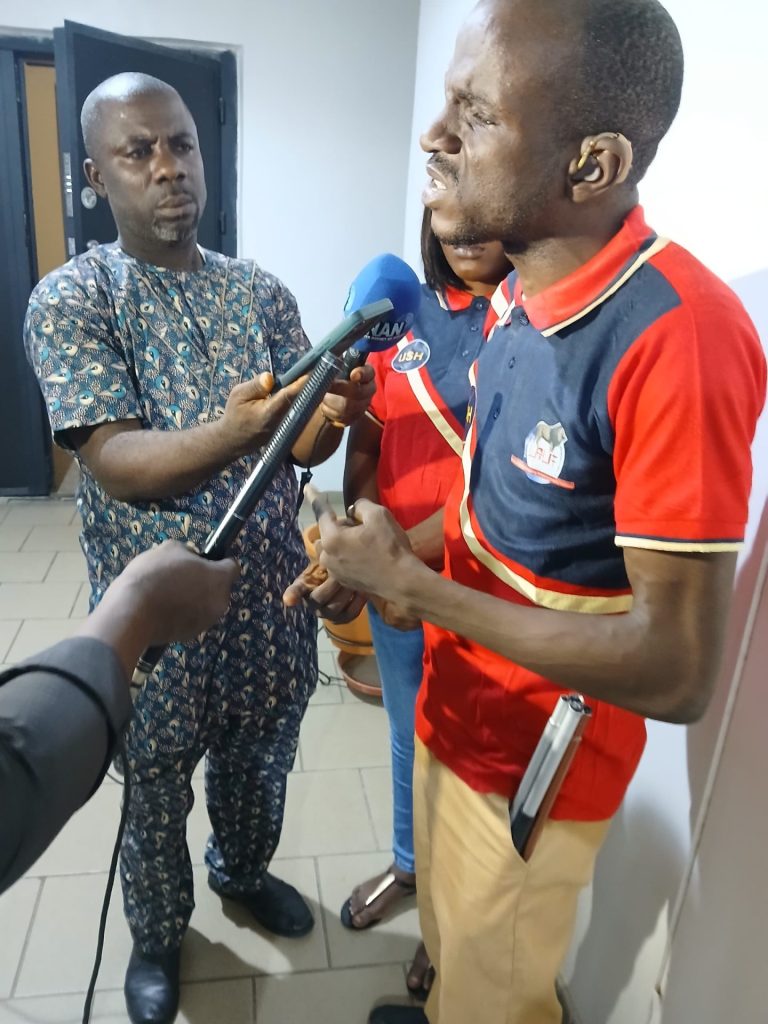
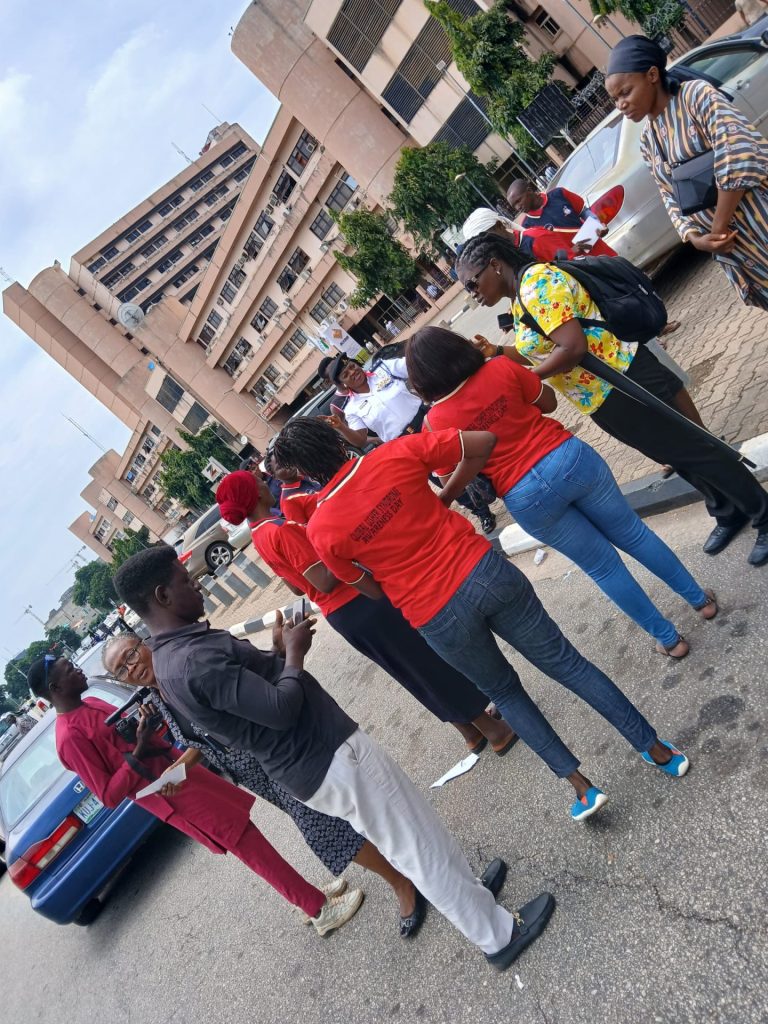

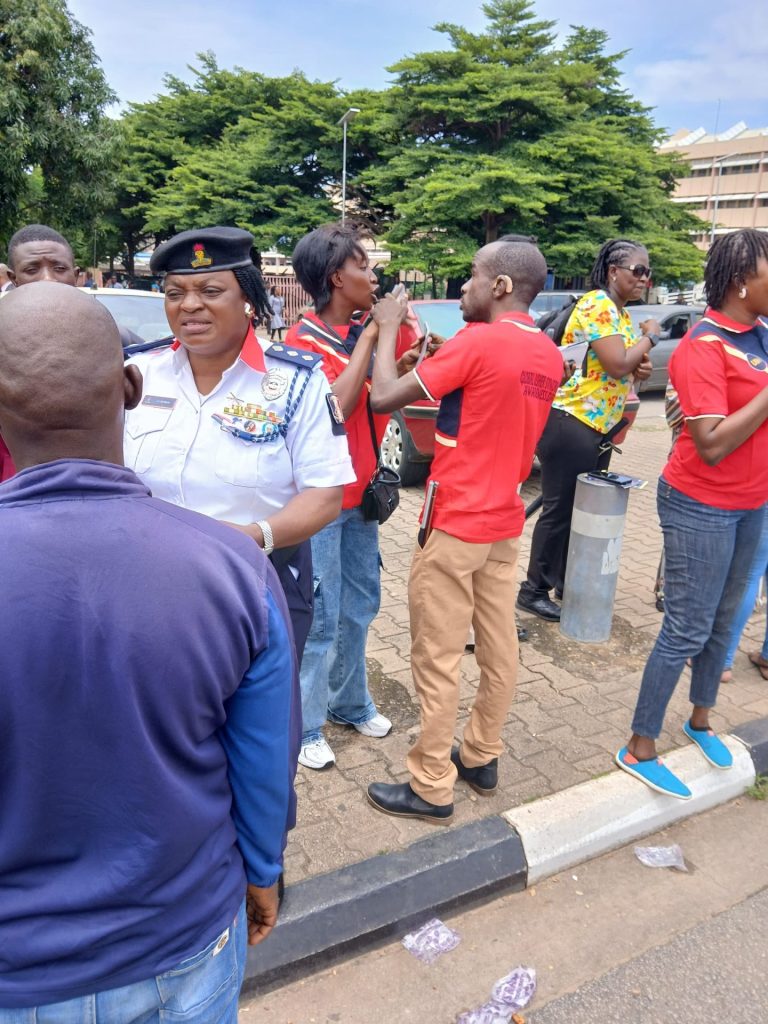
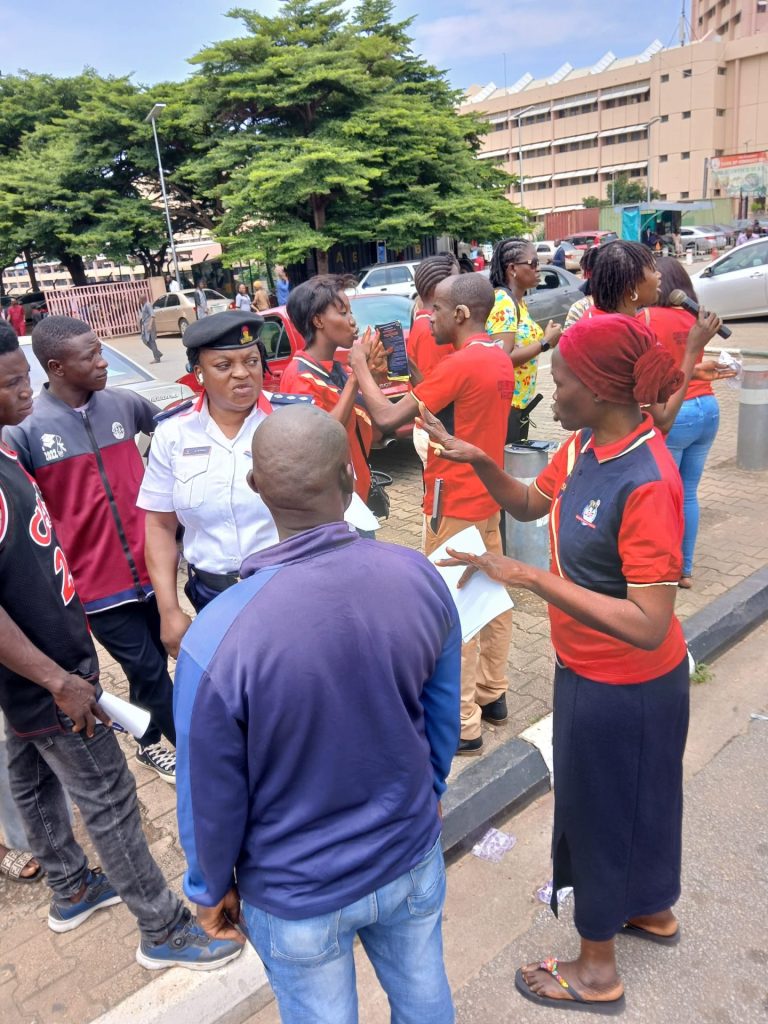
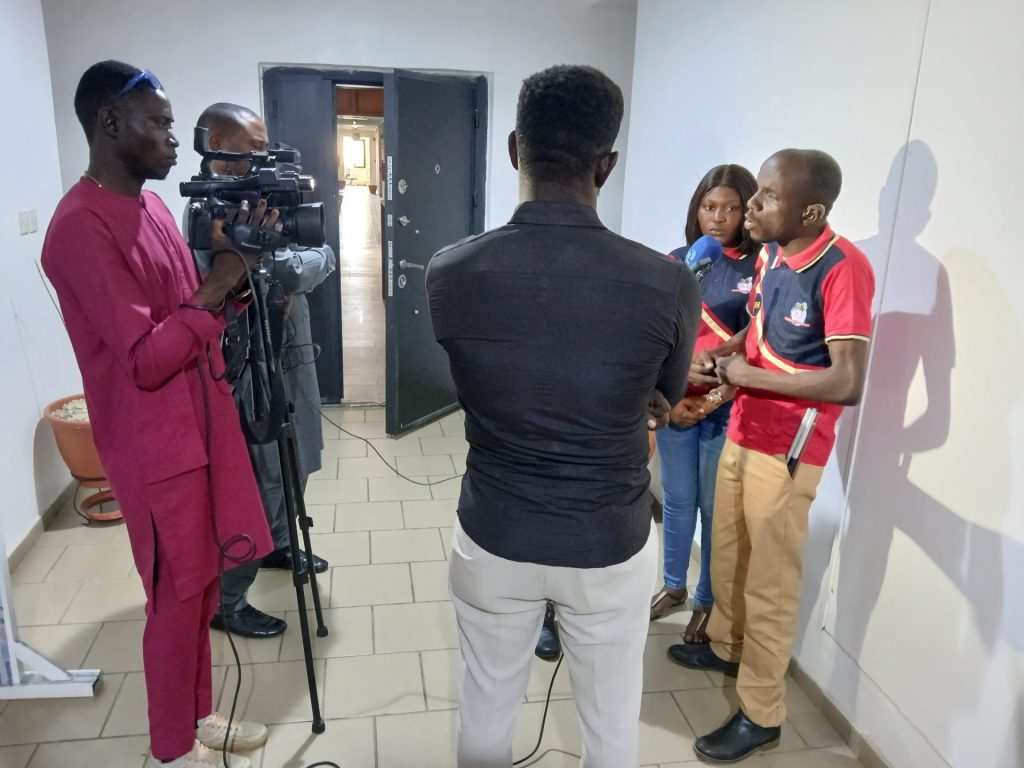
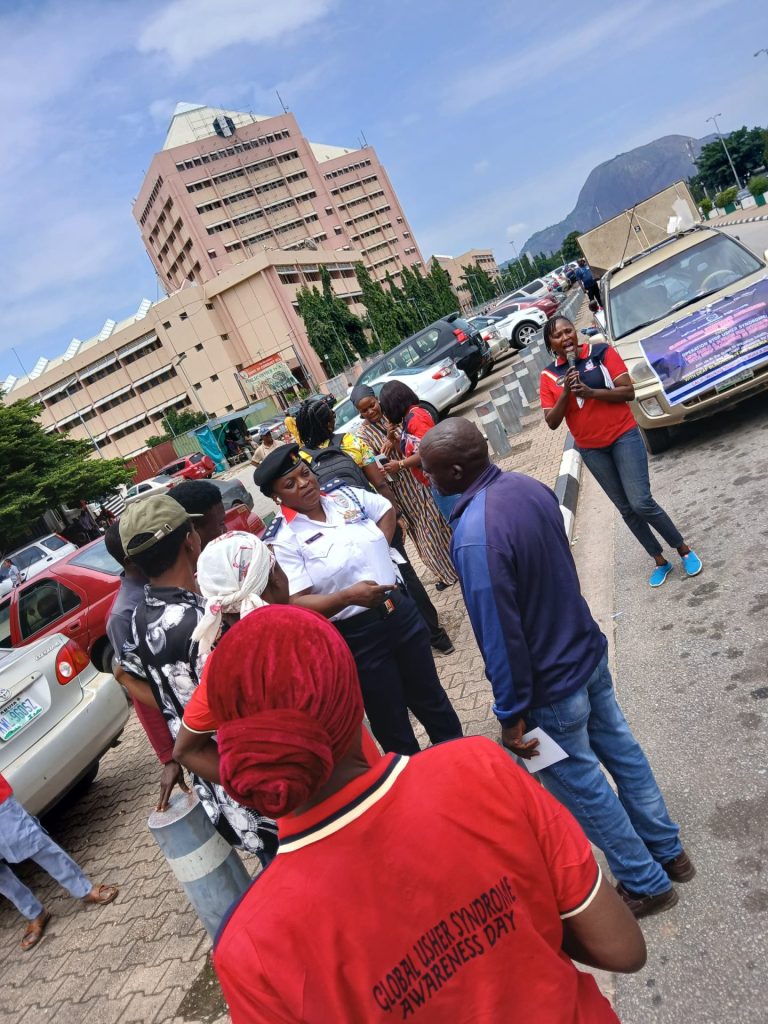
The Case for Government Involvement
In addition to calling for recognition of Global Usher Syndrome Awareness Day, advocates are urging the Nigerian government to take concrete steps to address the condition at a national level. One of the key demands is the empowerment of medical practitioners with knowledge and skills in genetic testing and counseling, which are essential for the early detection, prevention, and management of Usher Syndrome.
Genetic testing is the only way to determine if an individual is a carrier of the defective gene responsible for Usher Syndrome. However, this kind of testing is virtually unavailable in Nigeria due to a lack of equipment and training among medical professionals. As a result, many carriers unknowingly pass the gene on to their children, leading to an increase in the incidence of the disorder.
“We are calling for the government to invest in the training of medical professionals and to provide the necessary equipment for genetic testing,” said Okelola. “This is the only way we can prevent future generations from being born with Usher Syndrome.”
The advocates also stress the importance of including genetic testing and counseling in the curriculum of medical schools across Nigeria to ensure that future generations of doctors are equipped to tackle the disorder.
A Dire Situation for Nigeria’s Deaf-Blind Community
The situation for individuals living with deaf-blindness in Nigeria is dire. Most people with the condition are isolated from society, locked away in their homes by family members who believe that they cannot contribute to society. Many are denied their fundamental human rights, including the right to education, employment, and healthcare.
“Most people with deaf-blindness in Nigeria live in abject poverty,” said Okelola. “They are often completely dependent on their families for survival, and many have never been to school or received any form of education. This is a waste of human potential, and it’s something that we as a society need to address.”
The United Nations Convention on the Rights of Persons with Disabilities stresses the importance of meaningful existence for all individuals, regardless of their disabilities. However, for many deaf-blind individuals in Nigeria, these rights remain inaccessible due to the extreme challenges they face in communication, education, and social interaction.
Proactive Collaboration and Partnerships
To turn the tide on this issue, advocates are calling for proactive partnerships between the Nigerian government, healthcare institutions, and international organizations. One of their main objectives is to forge collaborative efforts with the Federal Ministry of Information, the National Communications Commission, the Broadcasting Corporation of Nigeria, and other media outlets to raise awareness about Usher Syndrome across the country.
“The media plays a crucial role in educating the public about this condition,” said Okelola. “We need to ensure that information about Usher Syndrome reaches every corner of Nigeria, from the cities to the grassroots.”
The advocates are also pushing for the government to make budgetary allocations that will support the empowerment of medical practitioners and ensure the availability of genetic testing equipment in hospitals across the country. Without these resources, they argue, the prevalence of Usher Syndrome in Nigeria will continue to rise, with devastating consequences for individuals and society as a whole.
A Glimpse of Hope
Despite the significant challenges faced by individuals with Usher Syndrome and the deaf-blind community in Nigeria, there is hope. The growing awareness of the condition, coupled with the support of organizations like the Disability Rights Fund and the Lagos State Office for Disability Affairs, has laid the groundwork for meaningful change.
“We are seeing more recognition of the challenges faced by people with deaf-blindness,” said Okelola. “The National Commission for Persons with Disabilities has expressed its commitment to working with us to halt the spread of Usher Syndrome and to support the needs of individuals with the condition.”
During a recent public awareness rally in Abuja, advocates met with officials from the National Commission for Persons with Disabilities to present their case. The rally, which took participants from the Millenium Gardens in Maitama to the Federal Secretariat, aimed to educate the public about Usher Syndrome and its impact on affected individuals.
At the National Commission, the Director of Social Integration, Mr. Lawrence Idemudia, promised to deliver the advocates’ message to the Executive Secretary and assured them that the commission would work with them in their efforts to create awareness and support individuals with deaf-blindness in Nigeria.
Looking Ahead
As Nigeria moves closer to the recognition of Global Usher Syndrome Awareness Day, advocates remain hopeful that their efforts will lead to tangible changes in the lives of those affected by the disorder. They believe that with the right support, individuals with Usher Syndrome can lead meaningful lives and contribute to the nation’s growth and development.
“We are not just advocating for awareness,” said Okelola. “We are advocating for a future where individuals with deaf-blindness are given the tools and support they need to succeed. This is about building a better Nigeria for everyone, including generations yet unborn.”
With continued advocacy, collaboration, and government involvement, there is hope that Usher Syndrome can one day be made history, and that Nigeria will emerge as a leader in the global fight against deaf-blindness.
Conclusion
The call to recognize and support Global Usher Syndrome Awareness Day in Nigeria is more than just a symbolic gesture. It is a critical step toward addressing an often-overlooked condition that has the potential to affect generations. By raising awareness, empowering medical practitioners, and providing the necessary resources, Nigeria can join the global movement to halt the spread of Usher Syndrome and give hope to thousands of individuals living with deaf-blindness across the country. The 2024 Global Usher Syndrome Awareness Rally put together by Lionheart Ability Leaders International Foundation(LALIF) was supported by Disability Rights Fund (DRF).

